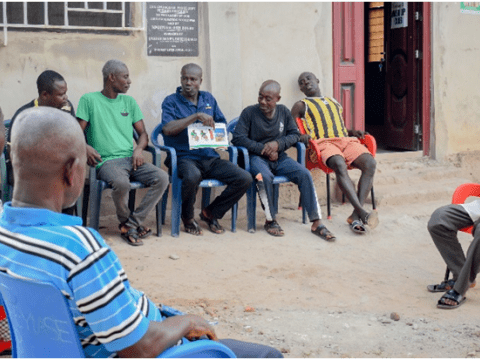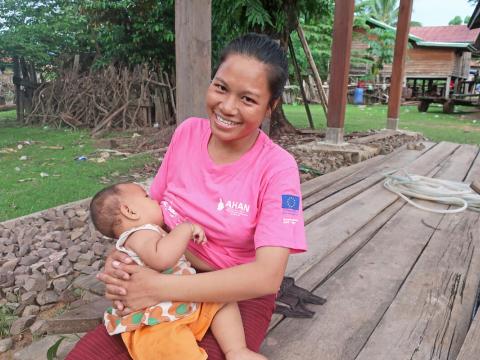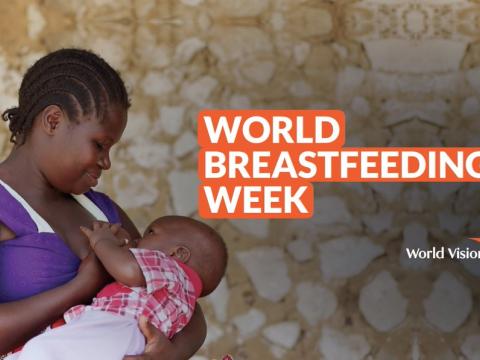
Protect, Promote, and Support Breastfeeding – what does this mean and why it matters
Colleen Emary explains why and how women everywhere must have the information, the opportunity and support to breastfeed their children
This year’s World Breastfeeding Week theme is Closing the Gap: Breastfeeding Support for All. I am reminded of a phrase commonly heard when discussing breastfeeding among my peers: Protect, Support, and Promote Breastfeeding. While often said, what do these words really mean in practice?
Protecting Breastfeeding means that families are able to make informed decisions about how to feed their infant, free from the influence of commercial infant formula marketing. World Vision supports the WHO International Code of Marketing of Breast Milk Substitutes (the ‘Code'), a global policy framework intended to regulate the marketing of breastmilk substitutes in order to protect breastfeeding. The evidence is clear that the marketing and promotion of infant formula through advertising, social media, and the health care system influences decisions on infant feeding, leading to lower breastfeeding rates. For the Code to be effective, it must be enacted into national legislation and enforced. In the Philippines, for example, World Vision supported the Mother-Baby Friendly Philippines project, aimed to improve implementation of the laws protecting breastfeeding.
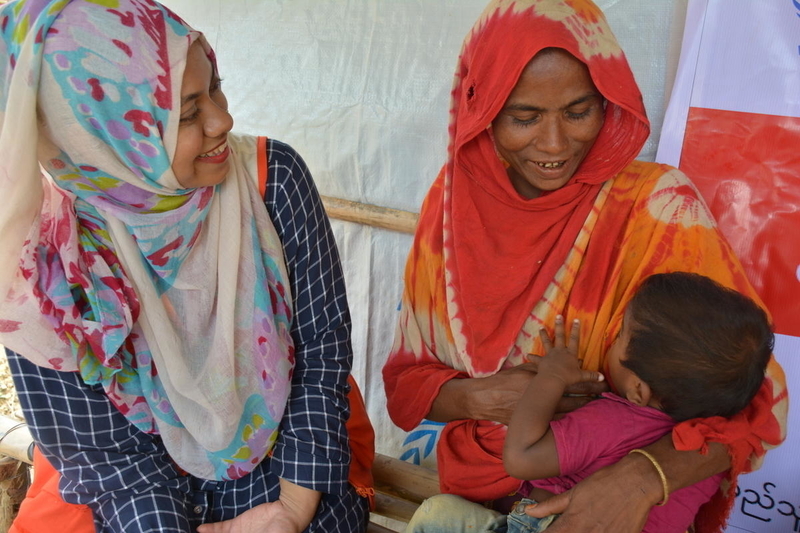 Protecting breastfeeding also means ensuring that a women’s right to breastfeed anywhere and at anytime is upheld. This includes advocating for effective maternity entitlements and supports in workplaces so that women do not have to choose between breastfeeding and their work. Several World Vision offices in Asia Pacific region have taken important steps to protect breastfeeding through initiating a Mother-Baby Friendly Office movement. As a result, some offices in Asia Pacific and other regions have extended maternity or paternity benefits beyond nationally legislated requirements, while others have established breastfeeding rooms and on-site nurseries, like the ones launched in Tanzania last year, or have created flexible working arrangements.
Protecting breastfeeding also means ensuring that a women’s right to breastfeed anywhere and at anytime is upheld. This includes advocating for effective maternity entitlements and supports in workplaces so that women do not have to choose between breastfeeding and their work. Several World Vision offices in Asia Pacific region have taken important steps to protect breastfeeding through initiating a Mother-Baby Friendly Office movement. As a result, some offices in Asia Pacific and other regions have extended maternity or paternity benefits beyond nationally legislated requirements, while others have established breastfeeding rooms and on-site nurseries, like the ones launched in Tanzania last year, or have created flexible working arrangements. 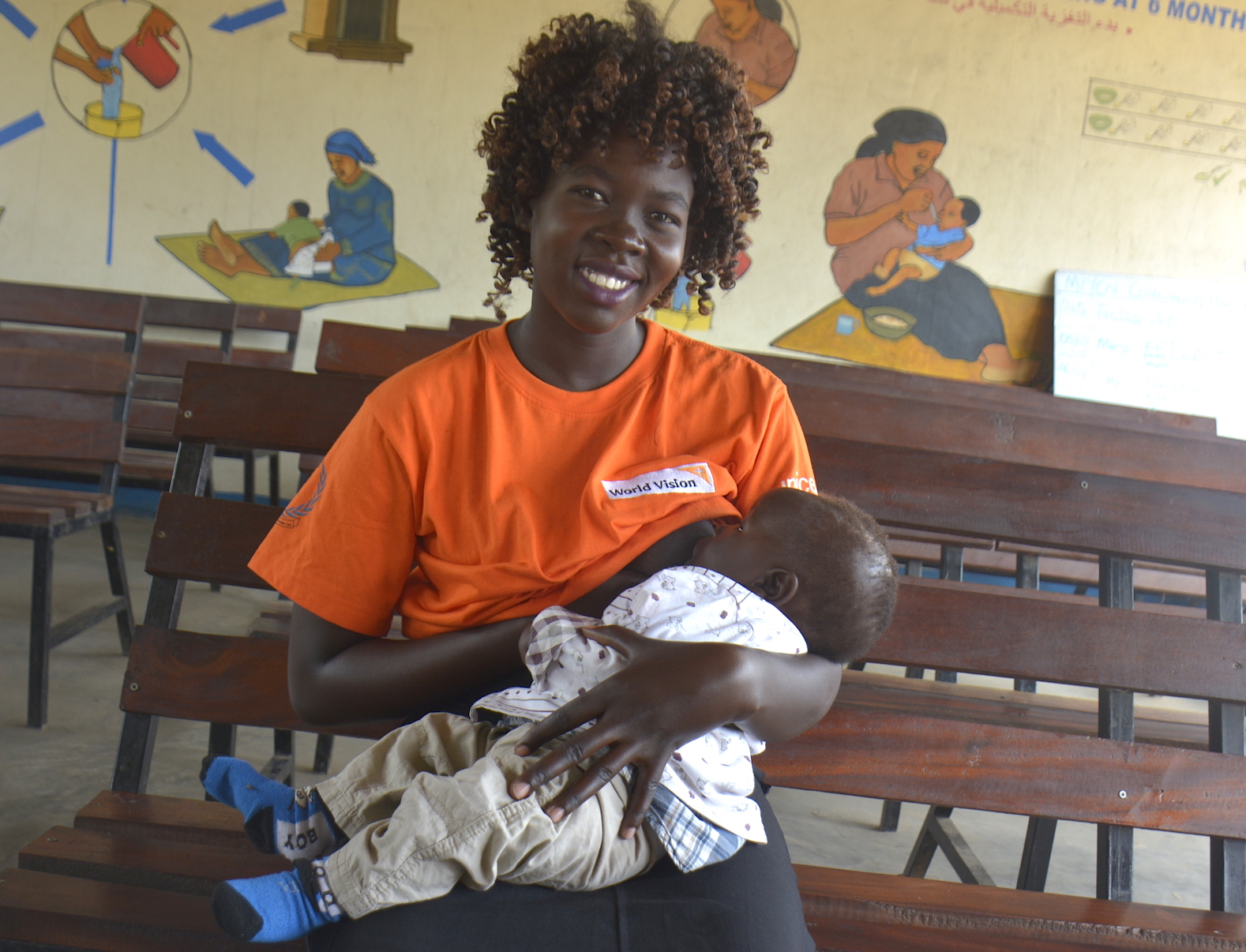 Promoting Breastfeeding involves ongoing activities that raise awareness of the importance of breastfeeding at all levels of society. This includes public awareness campaigns such as World Breastfeeding Week, breastfeeding education within the health system, and including breastfeeding as part of the curriculum on healthy nutrition for school-age children. Breastfeeding promotion is also about sharing positive breastfeeding stories, like this one from Cambodia, and is critical to create a positive environment, so that breastfeeding is normalised in public life.
Promoting Breastfeeding involves ongoing activities that raise awareness of the importance of breastfeeding at all levels of society. This includes public awareness campaigns such as World Breastfeeding Week, breastfeeding education within the health system, and including breastfeeding as part of the curriculum on healthy nutrition for school-age children. Breastfeeding promotion is also about sharing positive breastfeeding stories, like this one from Cambodia, and is critical to create a positive environment, so that breastfeeding is normalised in public life. 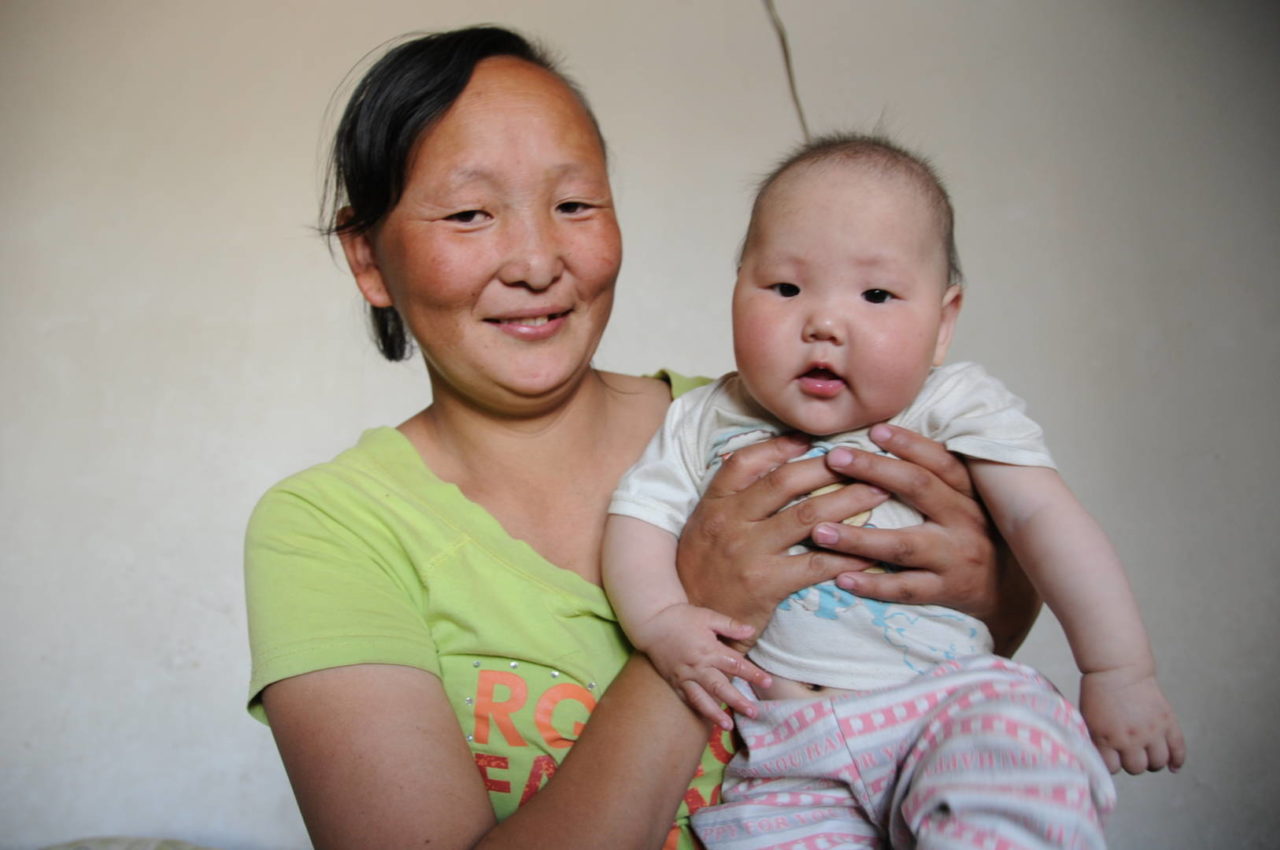 One fundamental aspect of Supporting Breastfeeding is providing practical, skilled support for a mother from the time she delivers her baby until the time breastfeeding ends. Mothers need more than information about breastfeeding, they need practical help to problem-solve challenges they face while learning to breastfeed. While breastfeeding support is required for all mothers in all contexts, it is especially important in times of crises, when the usual family and social supports for mothers are disrupted. In Colombia, World Vision and its partners established spaces to support pregnant and breastfeeding mothers in vulnerable conditions, including migrants and refugees. Such spaces provide privacy, advice, and access to skilled counselling to support the health of women and their children.
One fundamental aspect of Supporting Breastfeeding is providing practical, skilled support for a mother from the time she delivers her baby until the time breastfeeding ends. Mothers need more than information about breastfeeding, they need practical help to problem-solve challenges they face while learning to breastfeed. While breastfeeding support is required for all mothers in all contexts, it is especially important in times of crises, when the usual family and social supports for mothers are disrupted. In Colombia, World Vision and its partners established spaces to support pregnant and breastfeeding mothers in vulnerable conditions, including migrants and refugees. Such spaces provide privacy, advice, and access to skilled counselling to support the health of women and their children.
Why does this matter?
Protecting, promoting, and supporting breastfeeding are crucial to create a supportive environment. Building such an environment for breastfeeding is everyone’s responsibility, from that of policy makers in government, to health care workers providing advice to pregnant women; from the café owner who ensures breastfeeding mothers feel welcome in their space, to partners and grandparents who offer encouragement and practical support.
Our world will be a better place if more women are supported to breastfeed. More babies will survive and be protected from disease, maternal health will improve, and the economic benefits will be felt globally.
This requires renewed effort from all of us. World Vision joins with partners in a Global Breastfeeding Call to Action, calling upon governments, philanthropies, international organisations, and civil society to:
- Increase funding to raise breastfeeding rates from birth through two years.
- Fully implement the International Code of Marketing of Breastmilk Substitutes and relevant World Health Assembly resolutions through strong legal measures that are enforced and independently monitored by organizations free from conflicts of interest.
- Enact paid family leave and workplace breastfeeding policies, building on the International Labour Organization’s maternity protection guidelines as a minimum requirement, including provisions for the informal sector.
- Implement the Ten Steps to Successful Breastfeeding in maternity facilities, including providing breastmilk for sick and vulnerable newborns.
- Improve access to skilled breastfeeding counselling as part of comprehensive breastfeeding policies and programmes in health facilities.
- Strengthen links between health facilities and communities, and encourage community networks that protect, promote, and support breastfeeding.
-
Strengthen monitoring systems that track the progress of policies, programmes, and funding towards achieving both national and global breastfeeding targets.
Colleen Emary is Senior Technical Advisor, Nutrition for World Vision. She is a public health nutritionist, with 20 years of experience working on global nutrition issues. She has provided leadership for design, implementation and evaluation of nutrition programmes, including short-term and remote technical support for several countries in Africa, Asia and Latin America, along with emergency deployments to Bangladesh, Chad, and Democratic Republic of the Congo. She is an active contributor to the global emergency nutrition community. Follow her on Twitter @Cremary

